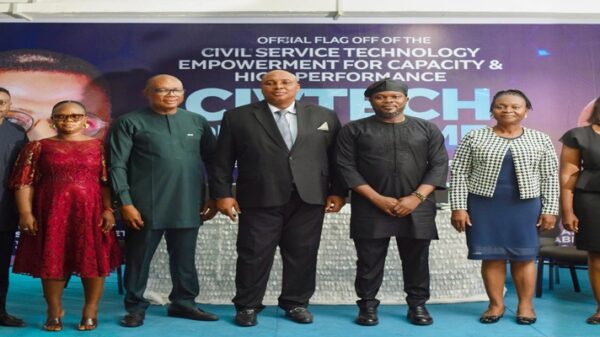A report has revealed that inadequate telecommunication infrastructure is hampering the operations of the Nigeria Custom Service (NCS) despite the NCS’s efforts in achieving an unprecedented N1trillion half year collection by the end of June, 2021 and processing about 700,000 Single Goods Declaration (SGDs) in August 2019, and 820,000 in 2020.
The report, sited by Nigeria CommunicationsWeek stated that presently in 2021, Custom has processed over 1,100,000 SGDs which reflects in collected revenue without commensurate national upgrade in telecommunications and ICT infrastructure to accommodate the expansion.
The report hinted that importers and port agents have suffered setbacks due to the inadequate network and internet connectivity while trying to process their online transactions.
The report disclosed that despite the remarkable improvements and stability being experienced by port users in their transactions with the NCS, their system is not immune to the overall glitches being experienced across board in Nigeria and Africa.
The report remarked that the NCS is hoping to achieve N2 trillion revenue collection by end of 2021.
It further explained that inadequate network and internet connectivity have became the crux of debate for electronic transmission of results by the Independent National Electoral Commission (INEC), adding that it became the major reason why electronic voting was stepped down by lawmakers in the National Assembly.
It remarked that lack of confidence in the country’s technological backbone may have influenced the pattern of voting for and against electronic voting and transmission as more law makers stood against it.
According to the report, “Perceived infrastructural gaps and the need to meet users’ expectations have forced telecommunication companies in Nigeria to begin moves towards upgrading their infrastructures.
“Incessant glitches which directly affect businesses, polity and security have dotted their services and resulted in some setbacks.
Individual users across board have inundated the service providers with complaints of poor clarity, drop calls, slow internet access and in some cases lack of service at certain urban locations across the country.
“The servers are believed to be fine but reacting to increasing volumes of trade which requires upgrade. Findings have shown that operators may have the best computers, printers, hardware, software and everything else, but will also rely on telecommunications as well.
In most of the instances, it reached a point when the load on the telecomm service was a lot and it was slowing down the service. That, investigations have shown, was a major cause of the problem.”
![]()




























































